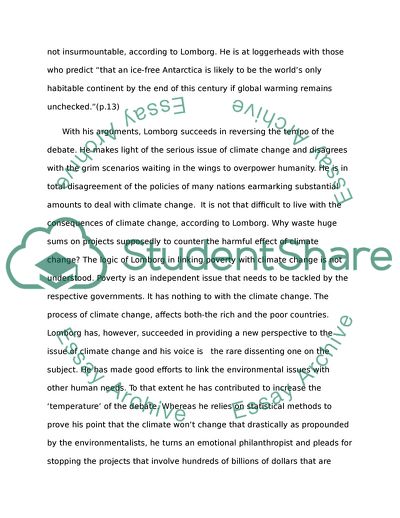Cite this document
(Cool It by Bjorn Lomborg Book Report/Review Example | Topics and Well Written Essays - 2000 words, n.d.)
Cool It by Bjorn Lomborg Book Report/Review Example | Topics and Well Written Essays - 2000 words. https://studentshare.org/literature/1737556-bjorn-lomborg-cool-it
Cool It by Bjorn Lomborg Book Report/Review Example | Topics and Well Written Essays - 2000 words. https://studentshare.org/literature/1737556-bjorn-lomborg-cool-it
(Cool It by Bjorn Lomborg Book Report/Review Example | Topics and Well Written Essays - 2000 Words)
Cool It by Bjorn Lomborg Book Report/Review Example | Topics and Well Written Essays - 2000 Words. https://studentshare.org/literature/1737556-bjorn-lomborg-cool-it.
Cool It by Bjorn Lomborg Book Report/Review Example | Topics and Well Written Essays - 2000 Words. https://studentshare.org/literature/1737556-bjorn-lomborg-cool-it.
“Cool It by Bjorn Lomborg Book Report/Review Example | Topics and Well Written Essays - 2000 Words”. https://studentshare.org/literature/1737556-bjorn-lomborg-cool-it.


